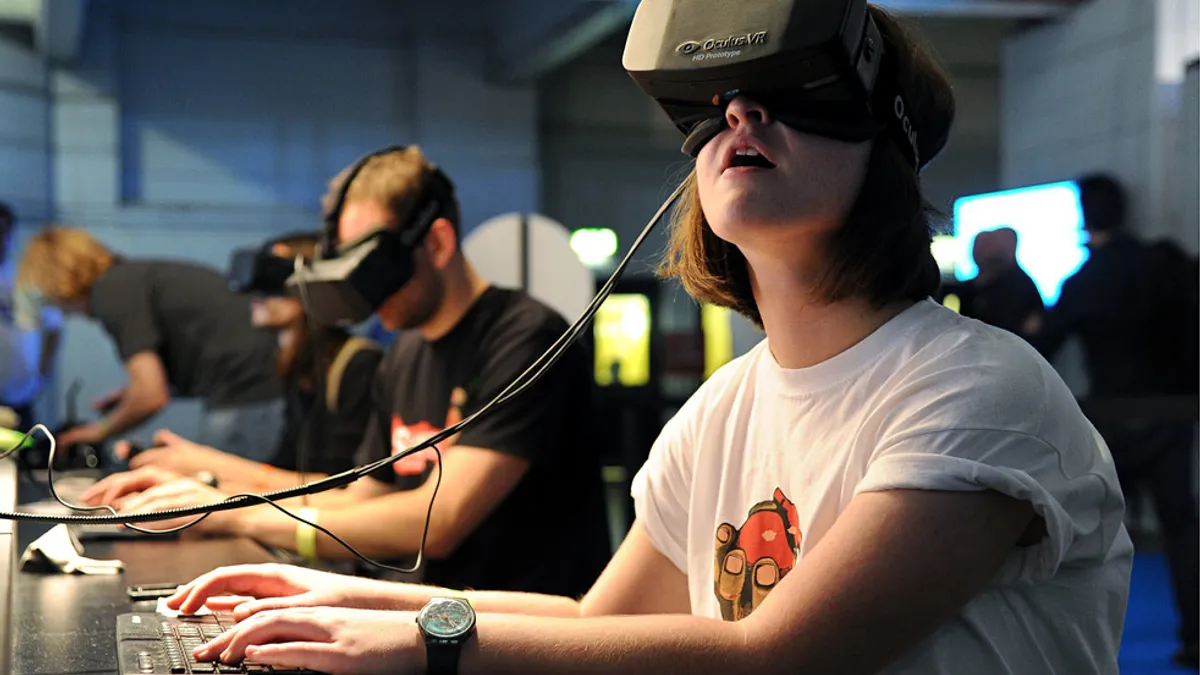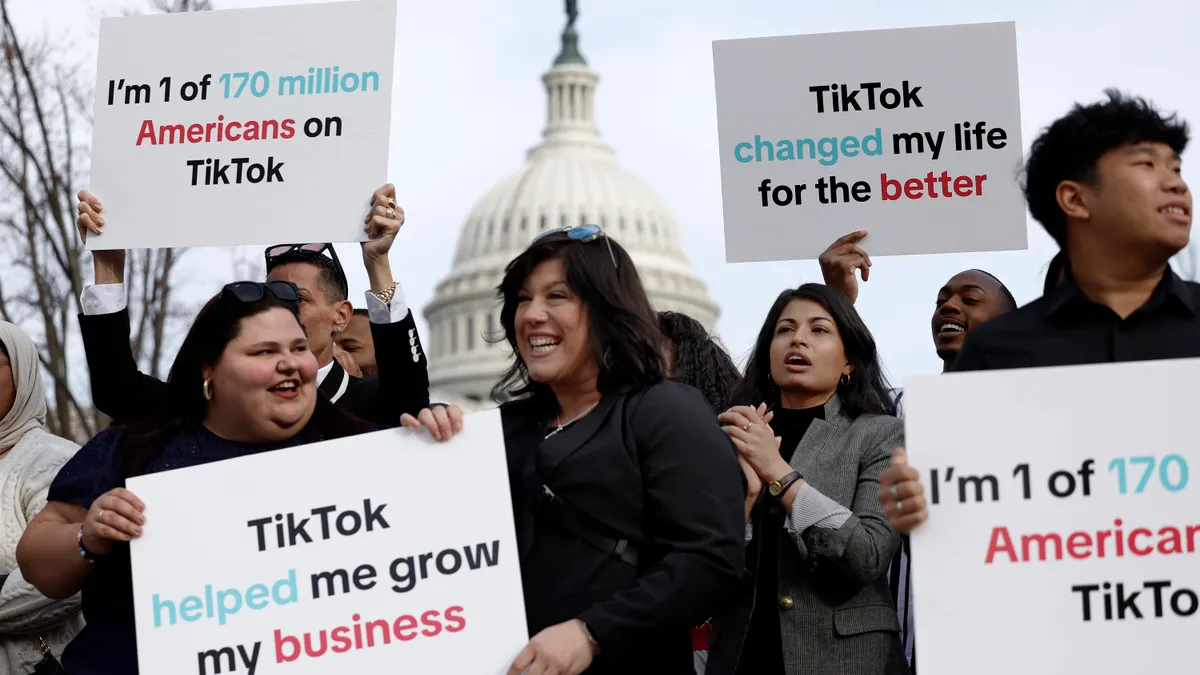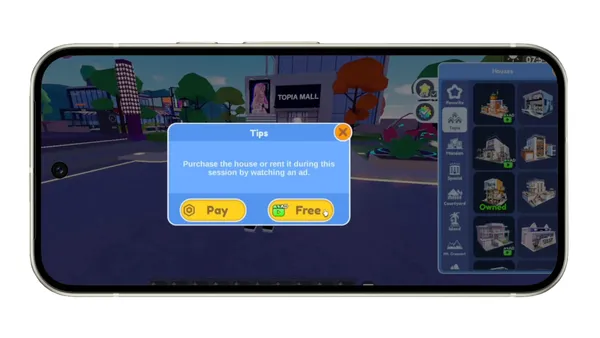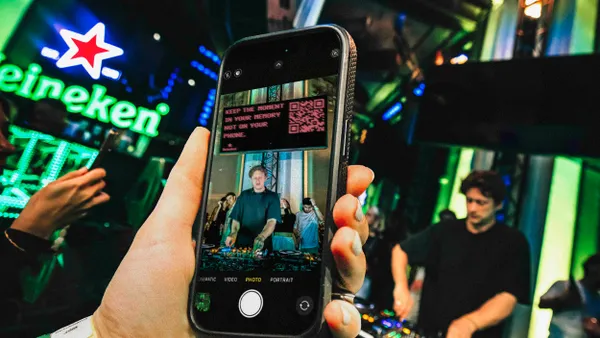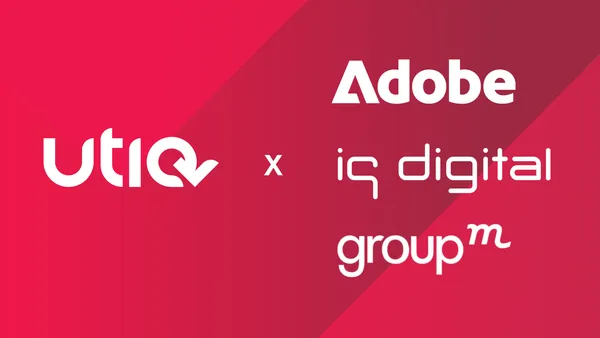Dive Brief:
- A joint YuMe/Nielsen study found virtual reality to be a powerful tool for creating emotionally engaging brand experiences, per a YuMe press release.
- The research used neuroscience technology to compare user response to the same content presented in three distinct mediums: VR, 360-degree video on a flat surface and 2D. VR received a 17% higher emotional reaction than flat 360-degree video, and a 27% higher reaction than 2D.
- VR content was also engaged for 34% longer than 2D, and 16% longer than 360-degree video.
Dive Insight:
Virtual reality looks to be poised to become a strong driver of emotional engagement for many brands, but the need to cede control to consumers — essentially making them the “directors” of their own VR experience — might be difficult for some marketers to adjust to.
In fact, one of VR’s greatest strengths — immersion — can become a major distraction from storytelling. YuMe and Nielsen noted many users’ attentions meandered to the periphery of content to take in the scenery, showing that prolonged time spent in VR doesn’t necessarily translate directly to brand engagement. Developing a guided narrative that still preserves immersion becomes essential, and it can be a difficult trick to pull off.
“Advertisers need to artfully balance freedom of exploration and storyline flow in new immersive environments,” said Stephanie Gaines, vice president of corporate marketing at YuMe.
VR’s stark difference from traditional, linear ad formats when it comes to narrative creates a steep learning curve for marketers, but the reward for well-done campaigns — with emotional responses heightened up to 27% — could be invaluable for making a lasting impression.
Marketers who see their brand as a good fit for VR should look to develop their knowledge sooner rather than later, as consumer spend on the tech could crack $50 billion over the next few years. Google might help drive that change: Its much-hyped Daydream View headset arrives today as an affordable, mobile-ready piece of hardware tailor-made for the mainstream.



